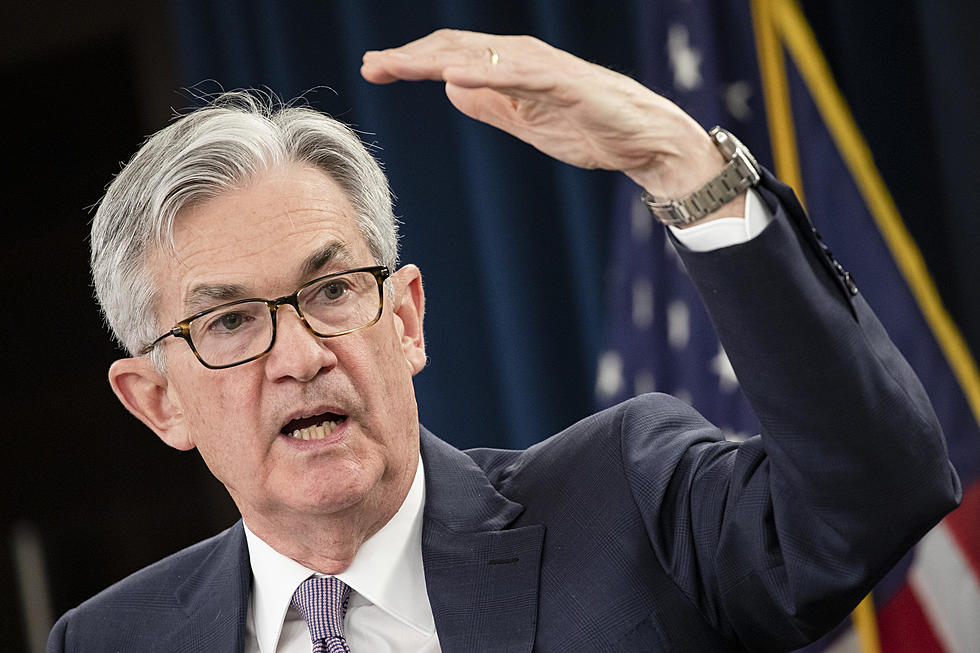
Gruber and Lummis Clash at Hearing
Jonathan Gruber is apologizing for being -- in his words -- "inexcusably arrogant."
He was answering to a House panel today for saying that "the stupidity of the American voter" helped bring about the passage of the health care law. He'd also been captured on video saying that a "lack of transparency" helped pass the legislation without any Republican support.
Gruber, an MIT economist, told lawmakers today that he'd been talking about things that were beyond his expertise. He said he had exaggerated his expertise to make himself look smarter -- and to look like a "political expert," which he says he's not.
Democrats tried to limit the damage at today's hearing, but they acknowledged that Gruber had given Republicans a political gift by making those comments.
Gruber told the panel that he was not the "architect" of the law, as some press accounts claimed. But Republican committee chairman Darrell Issa (EYE'-suh) of California called Gruber a crucial player in the legislation.
He and other Republicans sarcastically praised Gruber for "telling the truth" in his 2012 and 2013 remarks, while also hammering his efforts today to walk them back.
One of the most dramatic exchanges though, occurred when Wyoming Representative Cynthia Lummis confronted Gruber and Marylyn Tavenner of the Center for Medicare and Medicaid Services, and at one point the back and forth got very personal.
Here is the transcript, and video of the exchange...
REPRESENTATIVE CYNTHIA LUMMIS (R-WY): Thank you, Mr. Chairman. And thank you for your leadership these past couple of years. Appreciate your hard work on this committee.
Dr. Gruber, did you participate in the scoring aspect of the Affordable Care Act?
MR. GRUBER: I provided economic microsimulation results to the administration and Congress to help understand the costs and coverage effects of the law, but I did not provide any official scoring.
REP. LUMMIS: Well, you have stated that the ACA was written in a way -- a tortured way -- so CBO would not score it as a tax.
Now, how did the administration use your information to write the ACA in a tortured way so CBO would not score it as a tax?
MR. GRUBER: Once again, I apologize for my inopportune, just inappropriate terminology. I --
REP. LUMMIS: Well -- but they scored -- they didn't score it as a tax, right?
MR. GRUBER: The administration -- I did not draft --
REP. LUMMIS: How did you do it? How did you get CBO to not score it as a tax knowing that at some point you might have to get the U.S. Supreme Court to say it was a tax? How did you do it?
MR. GRUBER: I don't run CBO. I didn't draft the legislation.
REP. LUMMIS: What does CBO stand for?
MR. GRUBER: Congressional Budget Office.
REP. LUMMIS: And what is scoring?
MR. GRUBER: Scoring is the method by which the Congressional Budget Office estimates the effects of legislation on things like the federal budget.
REP. LUMMIS: You have said in 2012 remarks at Noblis that you wrote part of "Obamacare" yourself. What parts did you write yourself?
MR. GRUBER: If I said that, that was, once again, an effort to seem more important than I was.
REP. LUMMIS: Well, why would you say you wrote part of "Obamacare" yourself and you're the numbers guy -- they used your modeling. And they knew they might have to convince the U.S. Supreme Court that it was a tax and convince the Congressional Budget Office for scoring purposes that it was not a tax. How did you do that?
MR. GRUBER: Ma'am, once again, I did not write any part of the Affordable Care Act.
REP. LUMMIS: Well, why did you say in 2012 that explicitly that you wrote part of "Obamacare" yourself?
MR. GRUBER: I was speaking glibly -
REP. LUMMIS: How many non-politicians know what CBO is? How many non-politicians know what scoring is? How many non-politicians would know that you have to get by CBO scoring in order to get the Affordable Care Act to say that it's going to lower costs? You are a politician. Everything that has led up to your testimony today is inconsistent with your testimony today, which is to say all of your prior statements were a lie? Is that true? Were all of your prior statements a lie, or were they just glib?
MR. GRUBER: They were not a lie.
REP. LUMMIS: I want to change subjects and visit with Ms. Tavenner about something that you began to discuss with Dr. Gosar, and that is, is there a decline in participation? Is that what has yielded smaller increases in the cost of health care?
MS. TAVENNER: I don't have an answer for that and I think we'd had to wait for someone - it's too early to know.
REP. LUMMIS: Is there a way to analyze the information to get that fact? To determine it.
MS. TAVENNER: I think if you look at the Medicare trustees' report, if you look at the national health expenditure, it will show you trends.
REP. LUMMIS: OK, I'm hopeful to get those trends. I'm going to give you a little story. I'm on "Obamacare." My husband was on "Obamacare" with me. And we were told that we were enrolled in "Obamacare." And then when we filed claims, we were told we were not enrolled in "Obamacare." And then we got it straightened out and he filed claims and we were told once again that we were not on "Obamacare."
Well, come to find out, my husband was having chest pains at the time, that he was told we were not enrolled in "Obamacare," and come to find out, he didn't have all of the tests that he was advised by his physician to have. So on October 24th, a week before elections, my husband went to sleep and never woke up. He had a massive heart attack in his sleep at age 65, a perfectly, by all appearances, healthy man.
Come to find out in a conversation with his physician after he died, he chose not to have one of the tests, the last test his doctor told him to have. This happened to coincide with the time that we were told that we were not covered by "Obamacare." I'm not telling you that my husband died because of "Obamacare." He died because he had a massive heart attack in his sleep, but I am telling you that during the course of time that he was having tests by a physician and was told we were not covered by "Obamacare" that he then decided not to have the last test the doctor asked him to have.
Let me suggest that there may be a decline in participation and that it may not be to the benefit of the American people. I want to suggest that regardless of what happened to me personally that there have been so many glitches in the passage and implementation of "Obamacare" that have real-life consequences on people's lives and the so-called glibness that has been referenced today have direct consequences for real American people.
So get over your damned glibness.
MS. TAVENNER: First of all, I'm sorry…
More From K2 Radio









